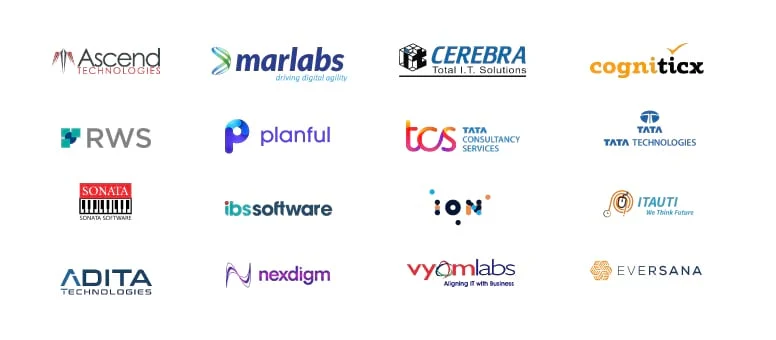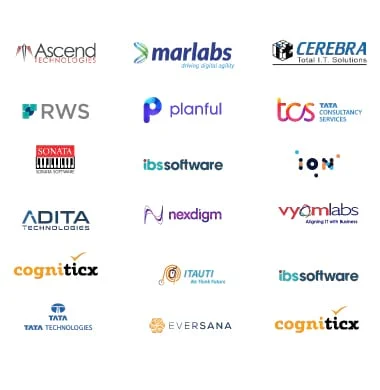30+ Hrs
Hands On Training
Lifetime Access
Updated Content
Customizable
Learning Paths
Industry Expert
Mentors
Projects
Advanced Interactive

Hands On Training
Updated Content
Learning Paths
Mentors
Advanced Interactive
OpenShift is a software development framework developed by Red Hat as a service ( PaaS). Its flagship product is the OpenShift Container Platform, an on-site infrastructure designed around Docker containers, organised and controlled by Kubernetes on the basis of Red Hat Enterprise Linux. It is an open source development platform that enables developers to develop and deploy their applications to the cloud infrastructure. It's really helpful in creating cloud-enabled services.
HKR delivers the best industry-oriented openshift training course that is in line to clear the certification exams. Our course covers all the key concepts such as key fundamentals of openshift, openshift concepts, containerized services, deploying the containerized applications, deploying multi-container applications and troubleshooting containerized applications, etc. During the training period, you can get full support and real-time project assistance from experienced professionals. Enroll today at HKR for accepting the new challenges to make the best out of our openshift online training.
To apply for the Openshift Training, you need to either:
The openshift course curriculum is structured to streamline the learning process by a team of experts. You can find the complete course details in below-mentioned modules
1.1 Introduction to Installing Docker on Ubuntu
1.2 Installing Docker on CentOS
1.3 Starting a Docker Host in the Cloud
1.4 Running Hello World in Docker
1.5 Running a Docker Container in Detached Mode
1.6 Creating, Starting, Stopping and Removing Containers
1.7 Building a Docker Image with a Dockerfile
1.8 Sharing Data in Your Docker Host with Containers
2.1 Introduction
2.2 Keeping Changes Made to a Container by Committing to an Image
2.3 Writing Your First Dockerfile
2.4 Packaging an application Inside a Container
2.5 Optimizing Your Dockerfile by Following Best Practices
2.6 Versioning an Image with Tags
2.7 Publishing Your Image to Docker Hub
3.1 Introduction Understanding Kubernetes Architecture
3.2 Kubernetes Objects
3.3 Kubernetes API Primitives
3.4 Creating a Multi-Node Kubernetes Cluster
3.5 Starting Containers on a Kubernetes Cluster with Pods
3.6 Using a Replication Controller to Manage the Number of Replicas of a Pod
3.7 Running Multiple Containers in a Pod
3.8 Validating Nodes & the Cluster
3.9 Running the Kubernetes Dashboard
4.1 How OpenShift, Kubernetes and docker work together
4.2 Accessing your cluster and logging in
4.3 Creating projects and deploying applications
4.4 Accessing your application by creating routes
4.5 Investigating application components
4.6 Comparing command-line and web workflows
5.1 Testing application resiliency
5.2 Working with labels and selectors
5.3 Scaling applications
5.4 Tracking application health and status
6.1 Using container metrics
6.2 Creating Horizontal Pod Autoscaler
6.3 Setting resource requests and limits
6.4 Load testing with the Apache HTTP server benchmarking tool
7.1 Promoting images
7.2 Invoking object triggers
7.3 Service discovery
7.4 Protecting sensitive data with secrets
7.5 Altering applications with config maps
8.1 Creating and managing persistent storage
8.2 Using the system: admin user to administer your cluster
8.3 Attaching persistent storage to applications
8.4 Making remote storage available in containers
8.5 Removing persistent storage from applications
8.6 Cleaning up persistent storage volumes
9.1 Deploying applications OpenShift platform container using S2I
9.2 Introduction
9.3 Launching demo app with source strategy
9.4 S2I Builder Primer
9.5 Deploying results app with Nodejs S2I Builder
9.6 Launching DB with a template
10.1 Adding permissions to users by assigning roles
10.2 Managing project resource limits and quotas
10.3 Setting default limits and quotas for projects
10.4 Examining how Linux enforces limits and quotas
10.5 Learning how SELinux isolates container resources
10.6 Understanding security contexts and application permissions
10.7 Scanning container images for security issues
10.8 Using security context constraints
10.9 Analyzing OpenSCAP security scan reports
11.1 Designing cluster networks
11.2 Understanding network traffic flow in OpenShift
11.3 Configuring Open vSwitch
11.4 Configuring OpenShift network plugins
11.5 Using DNS in OpenShift
This project type allows you to understand network traffic flow in OpenShift.
Deploying a web application over Open shift cluster.


The OpenShift training course benefits for the following list of professionals.
To start with the OpenShift training course, you need to check with the best institute that delivers knowledge. Before proceeding to join any training, take suggestions from the experts who had already learned the course. We at HKR, with a team of industry experts, are ready to fulfil your dream career to achieve a job in desired companies.
Once you complete the entire course along with real-time projects and assignments, HKR delivers the course completion certification. This certification helps to get a job in any company very quickly.
Our trainers are highly qualified and certified with many years of industry experience with a technical background in OpenShift.
Certification differentiates you from the non-certified peers, and you can demand the best salary in the leading companies.
We, at HKR, provide complete guidance to reach your dream job. But your job will be based on your performance in the interview panel and the recruiter requirements.
Each and every class is recorded so if you missed any class you can review the recordings and clarify any doubts with the trainer in next class.
Yes, we don’t assure 100% placement assistance. We are tied up with some corporate companies so when they have a requirement we send your profiles to them.
Yes, we provide demo before starting any training in which you can clear all your doubts before starting training.
Our trainers are real-time experts who are presently working on a particular platform on which they are providing training.
You can call our customer care 24/7
Max of the students gets satisfied with our training if you are not then we provide specialised training in return.
For Assistance Contact:
![]()
![]() +91 9711699759
+91 9711699759
Query